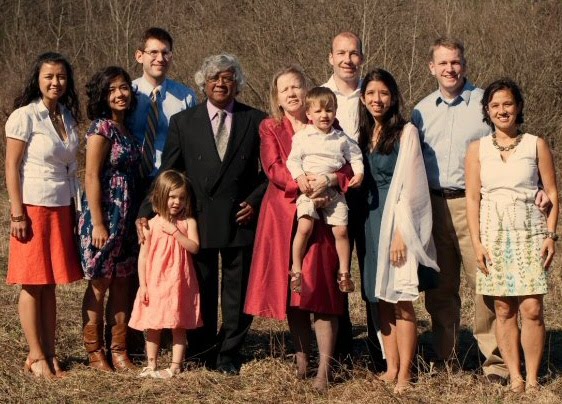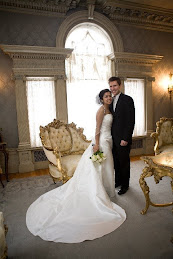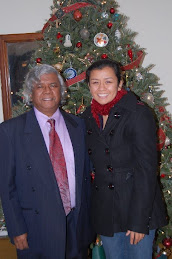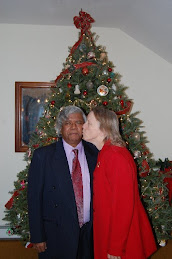Good morning,
Praise the Lord for this first Wednesday of March. We will gather for our mid-week service at 6 PM for a special meal prepared with much love. We will meet for study and sharing at 6:30 and the choir will meet at 7:30 PM.
It was in the Advent season of 1989 that the Spirit of The Lord, which ushers in freedom, began to blow across Eastern Europe and the Soviet Union. The strongholds of communism began to crumble. The Lord began to do His thing; the Berlin Wall collapsed. The communist regime, after 70 years of tyranny and oppression, was dismantled. The revolution came from within. The church was praying and living the Gospel in the midst of great oppression.
We are witnessing before our very eyes the movement of the Lord in the countries of the Middle East, ( Egypt, Tunisia, Iran, Libya and the rest) the breeding ground of persecution against Christians. It is a place of tyranny, terrorism, oppression, and the accumulation of wealth by few tyrants, the epicenter of the propagation of hatred against Christians. The Lord is doing something new and powerful. The strongholds of hatred, violence, and ignorance are crumbling before our very eyes. Blessed be His name. Let us be praying that the Lord of Freedom would open the doors for the Gospel of truth and liberty, that these might permeate the lands which are written about in the Bible.
One of the great men, a theologian and pastor, I admire is Dietrich Bonhoeffer. (The following articles is gleaned from various writings on Bonhoffer ) Dietrich Bonhoeffer was born into a family where faith was not much of a concern or topic of conversation, but as a 14 year old, Dietrich Bonhoeffer announced that he was going to be a pastor and theologian. His family was stunned and his older brother tried to persuade him that he was making a huge mistake. His brother said that the church was powerless, irrelevant, and unworthy of Dietrich’s commitment. Dietrich responded to his brother, "If the church is really what you say it is then I shall have to reform it."
The day came when the young man began his university studies in theology at Tuebingen, and then he went on to complete his studies at Berlin. His doctoral dissertation exposed his brilliance and he was becoming better known beyond the borders of Germany for his theological papers.
In 1930 Bonhoeffer went to the United States as a guest lecturer of one of its best-known seminaries. He was dismayed at the casual, lax attitudes with which American students approached theology. Unable to remain silent any longer, he informed the pastors-to-be, "At this liberal seminary the students sneer at the fundamentalists in America, when all the while the fundamentalists know far more of the truth and grace, mercy and judgment of God."
Dietrich was a gifted scholar and professor, but deep in his heart – he was a pastor. By 1933 he had left university teaching behind and was a pastor to two German-speaking congregations in London, England. By now the life-and-death struggle for the church in Germany was under way as Hitler welded more and more influence on all aspects of German culture. Bonhoeffer began to struggle with the idea – “Does the Church live by the Gospel alone or can the Church and the State become intermingled so that the Church supports the ideologies of the State?” These were tough questions when you have a leader like Adolf Hitler swaying Church leaders. Bonhoeffer came to the conclusion that the Church must live by the Gospel alone and avoid intermingling with the State or it would be rendered no Church at all.
An older professor of theology who had conformed to Nazi ideology in order to keep his job told Dietrich, "It is a great pity that our best hope in the faculty is being wasted on the church struggle." As the struggle intensified, it was noticed that Bonhoeffer’s sermons became more confident of God’s victory, and more defiant.
At the same time that Bonhoeffer was becoming more defiant of Hitler’s influence on the Church there was another sermon being preached in the Church of Germany. On January 25, 1934 Adolf Hitler called hundreds of pastors and leaders from the churches in Germany to a personal conference in Berlin. He was concerned about a possible split among the pastors concerning his policy over the German church. He criticized and threatened them, reminding the ministers that the economy in Germany was in great recovery and that he needed their unified support. He told them, "You confine yourself to the church. I will take care of the German people." Hitler was persuasive, he mesmerized the pastors and the Church became silent during the Nazi holocaust. The pastors aligned themselves with Hitler, they placed the Swastika on their pastoral robes, and in doing so they turned their backs on the cross of Christ.
Martin Niemoller, who along with Dietrich Bonhoeffer founded the Confessing Church in Nazi Germany, rose up in opposition to Hitler during the meeting. He said, "We are not concerned with the churches in Germany. Jesus Christ will take care of them Himself. We are concerned with the heart and soul of our nation." With that courageous statement in the face of a tyrant you would have thought that the pastors would have applauded him. Instead, Niemoller was ushered out of the meeting by several pastors and harshly condemned for causing trouble and ruining the possibility of building a relationship with the powerful leader of Germany. It was the men of God who silenced the very voice of God in Germany.
Dietrich Bonhoeffer once wrote, “When Christ calls a person, He bids him to come and die.” Dietrich would live that statement as his opposition brought more and more attention and persecution from Hitler’s henchmen. Bonhoeffer would not back away from his belief that there could be only one Fuehrer or leader for Christians, and it was not Hitler. Lutheran bishops and pastors remained silent in the hope of preserving institutional unity. In the face of weak leadership Bonhoeffer warned his fellow ministers that they ought not to pursue converting Hitler; what they needed most was to be converted themselves. An Anglican bishop who knew Bonhoeffer well in England later wrote, "He was crystal-clear in his convictions; and young as he was, and humble-minded as he was, he saw the truth and spoke it with complete absence of fear." Bonhoeffer himself wrote to a friend about this time, "Christ is looking down at us and asking whether there is anyone who still confesses Him."
The plot thickened and although Bonhoeffer had been a pacifist early in the war, he was now convinced that Hitler would have to be removed. He joined with several high-ranking military officers who were secretly opposed to Hitler and who planned to assassinate him. The plot was discovered in April 1943. Bonhoeffer would spend the rest of his life – the next two years – in prison before he was executed. Bonhoeffer always believed that God’s providence places us where we are and that we are to share the Gospel regardless of our situation. His ministry for two years was to fellow prisoners awaiting execution. One of Bonhoeffer’s fellow prison mates was Captain Payne Best, an Englishman, who survived the prison camp to pay tribute to the prison-camp pastor: "Bonhoeffer was different, just quite calm and normal, seemingly perfectly at his ease… His soul really shone in the dark desperation of our prison. He was one of the very few men I have ever met to whom God was real and ever close to him."
Bonhoeffer was taken out of the prison and taken to Flossenburg, an extermination camp in the Bavarian forest. On April 9, three weeks before American forces liberated Flossenburg, he was executed. Today the tree from which he was hanged bears a plaque with only ten words inscribed on it: “Dietrich Bonhoeffer, a witness to Jesus Christ among his brethren.”
Dietrich Bonhoeffer is a powerful example of living life “outside.” “When Christ calls a person, He bids him come and die.” He must die to the world’s ways of living, die to the world’s ways of speaking, die to the world’s ways of thinking, die to his own passions and pleasures, die to his own selfish desires. Christ bids us all to come and die so that we might live, fully live, in Him and Him alone.
In Hebrews 13:10-16.it is written: "We have an altar from which those who minister at the tabernacle have no right to eat. The high priest carries the blood of animals into the Most Holy Place as a sin offering, but the bodies are burned outside the camp. And so Jesus also suffered outside the city gate to make the people holy through his own blood. Let us, then, go to him outside the camp, bearing the disgrace he bore. For here we do not have an enduring city, but we are looking for the city that is to come. Through Jesus, therefore, let us continually offer to God a sacrifice of praise—the fruit of lips that confess his name. And do not forget to do good and to share with others, for with such sacrifices God is pleased. (Hebrews 13:10-16 NIV)
In Christ,
Brown
http://www.youtube.com/watch?v=i3-SwidavfU
Saturday evening worship service.
Location: First United Methodist Church. Endicott
53 McKinley Avenue, Endicott.
Sponsored by the Union Center United Methodist Church, 128, Maple Drive, Endicott
Saturday February 26, 2011
6PM Coffee Fellowship
6:30 PM Worship Service
Worship Music: Laureen Naik
Speaker: Rev. Brown Naik
Wednesday, March 2, 2011
Subscribe to:
Post Comments (Atom)










No comments:
Post a Comment